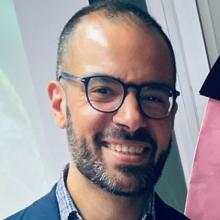Why did you decide to choose developmental science as a course of study or career?
Since my undergraduate years, I have strongly believed in the urgent need for interdisciplinary approaches to address the unique developmental challenges faced by LGBTQ+ children and adolescents, particularly in conservative countries like mine, Italy. My research interests lie at the intersection of developmental science and clinical psychology. Developmental science, in particular, has offered a powerful framework for conducting research that can meaningfully impact the lives of youth, especially those who are sexual and gender minorities. It has broadened my understanding of the main developmental challenges that LGBTQ+ youth encounter and has guided my efforts to support them. Much of my work has focused in fact on policies and practices aimed at helping LGBTQ+ youth thrive within their educational environments.
Is there a mentor or mentors who have been instrumental to your studies and career path so far, and, if so, who and how?
I have been incredibly fortunate to have two outstanding mentors who have profoundly shaped my academic career. During my PhD, I worked with Roberto Baiocco, who introduced me to sexual and gender identity research. His guidance not only inspired my passion for this field, but also taught me the importance of conducting this type of research in Italy, where it is often neglected or underfunded. During my postdoctoral program, I had the privilege of working with Stephen T. Russell. Collaborating with him broadened my intellectual horizons, encouraged me to ask daring research questions, and helped me put to rest my inner doubts and imposter syndrome.
I am deeply grateful to be able to continue working with both of them today. What makes these relationships all the more meaningful is that, over time, they have turned from mentors into friends, something that is very close to my heart.
What advice would you give to a prospective graduate student thinking about beginning their Ph.D. studies in the developmental science field?
Go for it! This field is full of brilliant minds and exciting opportunities—there’s so much to learn and explore. If you're an international student, don’t be afraid to make mistakes or worry about looking stupid. In fact, your Ph.D. years are the perfect time to stumble, ask questions, and grow from your experiences. Later in your career, you might feel pressured to appear as though you have everything figured out, and you may allow yourself fewer chances to fail.
That’s why it’s so important to find a mentor who can support you not just professionally, but also as a human being. Say yes to new ideas and learning opportunities whenever you can—this is the time to stretch yourself intellectually. As your responsibilities grow, time and mental space for exploration can become limited. So embrace the messiness of learning now—it’s where the real growth happens.
What is your best SRCD memory?
Probably my first SRCD conference. I remember being overwhelmed—in the best possible way—by the scale of the event. It felt incredible to be surrounded by so many brilliant minds, many of whom I had only known through the articles I was reading for my thesis. Suddenly, the names on the papers became real people, and I was part of that community. It was both humbling and inspiring—a moment that made me feel truly connected to the field.
Why did you join the SOGIE Caucus and how does it facilitate connection among members all year long?
As someone deeply engaged in research on SOGIE topics, I see joining the SOGIE Caucus as an important opportunity to stay current with the latest developments in the field and to connect with others who share similar passions. It’s not just about academic exchange—it’s also about community. Being part of the SOGIE Caucus allows me to maintain meaningful connections with longtime friends and colleagues, while continuing to build new relationships with scholars and advocates committed in this line of research.
